What Happens If I Do Not Plan For My Estate?
By: Stefan Dunkelgrun, Aloia, Roland, Lubell & Morgan, PLLC, Fort Myers, Florida
WHAT HAPPENS IF I DON’T PLAN?
You’re not alone – many people – roughly 6 out of 10 Americans die without a Will, or other personal estate plans. This is especially true of younger people – less than a quarter of millennials, and only about a third of Generation X, have documents in place.
So, knowing that the majority of people don’t plan, it may be important to know what happens if you don’t plan. (if you only care about the final distribution, skip to the last paragraph)
INTESTACY
If someone passes away and did not create an estate plan, that person’s entire estate is intestate. It’s a fancy word that literally means “without a Testament” (Testament is another word for a Will). A decedent can state in a Will who should receive their assets after they pass away, but if the decedent passes away without a Will, there’s no way of establishing to who they want to leave their assets.
Note the use of the word “establishing” rather than “knowing”. There may be people who know for a fact who should inherit, but in Probate Court, it cannot be established to a legal certainty. See, a Will is proof of the decedent’s intents, documented according to the laws of the state (which, in Florida, means in writing and in the presence of witnesses). Without a Will, there is no proof.

WHAT HAPPENS TO MY STUFF?
When you pass away, your assets essentially are divided into two broad categories – those that are subject to probate, and those that avoid probate.
Assets that avoid probate transfer by operation of law, meaning the change of ownership is automatic, triggered by the death of a (co-)owner. Everything else, goes through Probate, which is a court-supervised process to transfer assets from someone who’s gone, to someone who’s alive. If there is a valid Will, assets are transferred according to the terms of the Will. If there is no valid Will, or if there are assets that are not covered by the Will, these transfer according to the laws of Intestacy.
TRANSFER BY OPERATION OF LAW?
In Florida, there are three categories of assets that transfer by operation of law:
1) Co-Ownership; or, more precisely, certain forms of co-ownership. There are 4 types of joint ownership:
a. Tenants in Common. Tenants in common means that two or more people own something together, but their partial ownership is separate property. Let’s say two business partners buy a plot of land together. They both own the same plot, and both have full ownership of it, which does not have to be equal – one partner can own 60% and the other 40%, but it’s of the total, not of a particular part of the land. Each one can transfer his or her rights without the other’s approval, and the other retains his or her partial ownership. Likewise, each one can leave their share to whomever they want.
This form of co-ownership does not transfer by operation of law, but instead goes through the probate process.
b. Joint Tenants with Rights of Survivorship. This is like Tenants in Common, but with one major difference, the Rights of Survivorship. Rights of Survivorship means that if one of the co-owners passes away, his or her share automatically goes to the other owner(s). Imagine a home that’s been in the family for generations. To ensure it stays in the family, the elder owner leaves it to the last two children, or the survivor! The two children own the home together, but when one of them passes away, the other gets it.
This form of co-ownership transfers by operation of law – upon one person’s death, it automatically belongs to the others. No need for a probate.
c. Tenants by Entirety. This is a special form of Joint Tenants with Rights of Survivorship that is only available for married couples, and only in certain states (including Florida). Tenants by Entirety are not owned by the two spouses together, but by the marital unit as a whole. One spouse cannot transfer or encumber the property without the other spouse’s permission. When one spouse passes away, the other spouse automatically owns it. This is by operation of law, there is no need for a probate.
d. Community Property. This is another form of co-ownership that is only available for married couples, but is not available in Florida. If a married couple lived in one of the states that allows community property, being Arizona, California, Louisiana, Nevada, New Mexico, Texas, Washington, and Wisconsin, any property acquired while married and residing in those states is equally owned by both spouses, regardless of who earned or received the property. When one of the spouses passes away, community property transfers to the other spouse by operation of law.
e. Life Estate (Bonus). Life Estate is a different type of co-ownership, in that it is based on time. Property is split among the life estate and the remainder interest, both of which can have a single owner or multiple owners. The life estate is a temporary ownership that lasts for the rest of a person’s life; that person may sell or transfer the property to someone else, but eventually the ownership interest will expire. The remainder interest is an ownership interest that is deferred, and only goes into effect when that same person passes away.
Imagine a medieval lord who had a good friend – the lord could grant a life estate to the friend, giving the friend the right to live on that piece of land for the rest of the friend’s life, but upon the friend’s death, the land would go back to the Lord’s family.
When the life estate ends, the life estate terminates, and the remainder interest takes full possession, automatically.
2) Beneficiary Designation. Financial accounts, including bank accounts, retirement accounts, and life insurance, can have a named beneficiary (or multiple beneficiaries). Upon the death of the owner, the assets automatically belong to the named beneficiary.
3) Homestead. Florida has special protections for the homestead, being the building and land on which a person resides and makes their home. These protections include an automatic transfer of the home to certain heirs, particularly a spouse, who will at the very least receive a life estate, and minor children, who at the very least receive a remainder interest.
WHAT ARE THE INTESTACY LAWS?
As stated earlier, any assets that do not transfer by operation of law transfer through probate. Probate will transfer assets according to the Last Will and Testament of the decedent, if any, or otherwise, according to the rules of intestacy. The rules of intestacy are as follows:
1 – Did the decedent have a surviving spouse?
If so, and the decedent had no surviving descendants, the spouse receives everything
If so, and neither spouse had separate descendants, the spouse receives everything
If so, and either the decedent or the surviving spouse had separate descendants, the spouse receives half.
If there was no spouse, or if the spouse received half, the remainder shall be distributed as follows:
2 – to the descendants of the decedent, per stirpes. “Per Stirpes” is a Latin phrase meaning by branch. If a decedent had two children, they would each receive 1/2. If one child predeceased, but left 3 grandchildren, each grandchild would receive a third of the 1/3 that was allocated to that child, so they would get 1/6th each. If a line is extinguished, that share goes to the other, so if one of those three grandchildren had also predeceased, leaving no great-grandchildren, the other two grandchildren would split that share, so they would each get 1/6 plus half of 1/6, or 1/4.
3 – If there are no descendants, then half to the decedent’s father and half to the decedent’s mother, or to the survivor of them.
4 – If there are no living parents, then to the descendants of the parents, per stirpes.
5 – if the parents had no other descendants, then to the grandparents of the decedent, or their descendants, per stirpes.
6 – if no grandparent of the decedent had any descendants, then to the family of the last deceased spouse of the descendant, following these same rules
7 – finally, if there really is no one left, your assets will escheat to the state; more specifically, the assets will be deposited in the State School fund.
TL/DR? (Too Long / Didn’t Read)
So, to sum up, certain co-owned assets automatically belong to the other owner, financial assets with a designated beneficiary go to the beneficiary, and the homestead may transfer by operation of law. All other assets have to go through probate, and if you don’t have a will, the assets will be distributed to your spouse, if you’re married – or half to your spouse if one of you has separate descendants. If you’re unmarried/widowed your assets, or the remaining half if you have separate children, will go to your descendants. If you don’t have descendants, it’ll go to your parents or their descendants; if none, to your grandparents and their descendants. If you have no one, it’ll go to your deceased spouse’s family, or otherwise to the State. Our estate tax planning attorneys can help you make the correct choices.
Bio:
Stefan Dunkelgrun leads the Wills, Trusts, Estates and Probate practice at Aloia, Roland, Lubell & Morgan, PLLC. He has vast experience in high net worth and ultra-high net worth estate planning, developing asset protection solutions, drafting complex trusts, business succession planning, and tax reduction strategies. In addition to estate planning, Dunkelgrun has significant experience designing sophisticated insurance-based estate planning solutions such as premium finance platforms and offshore private placement products.
Dunkelgrun is admitted in Florida, Minnesota, New York and North Dakota, as well as U.S. Tax Court, and holds an M.B.A., and a J.D. from Fordham University.


